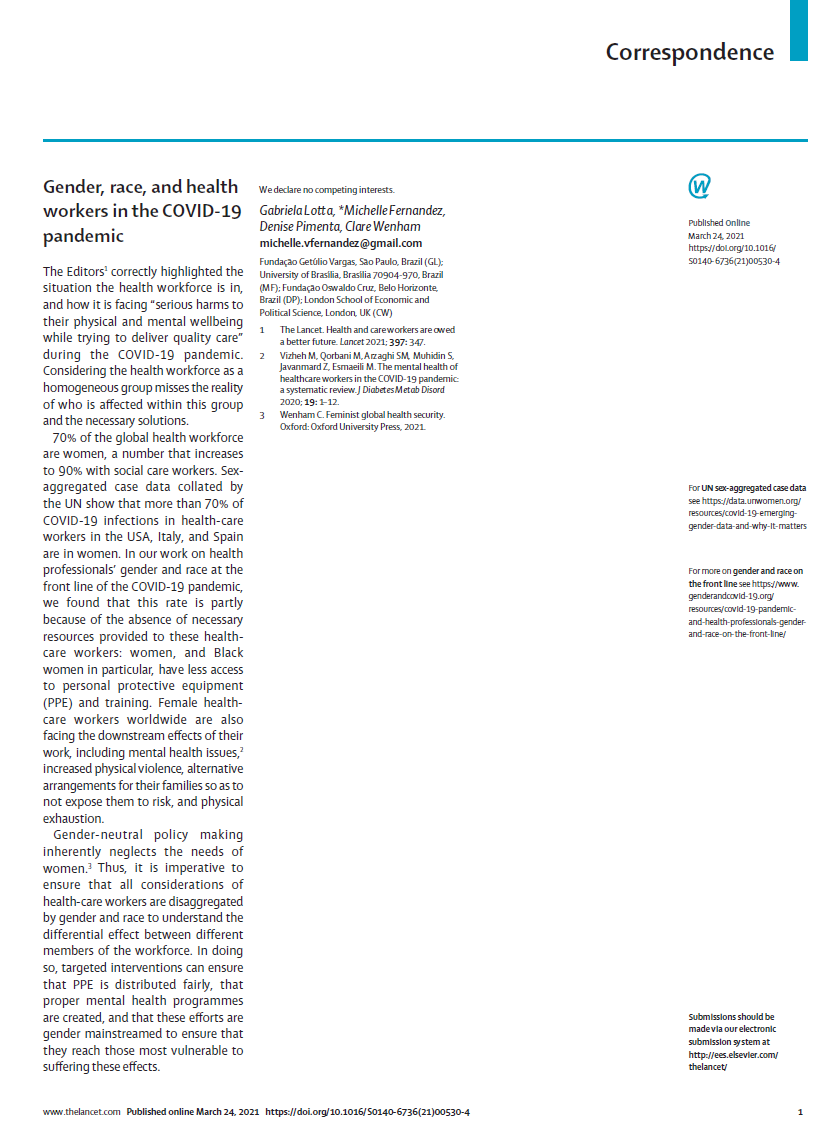70% of the global health workforce are women, a number that increases to 90% with social care workers. Sex-aggregated case data collated by the UN show that more than 70% of COVID-19 infections in health-care workers in the USA, Italy, and Spain are in women. In our work on health professionals’ gender and race at the front line of the COVID-19 pandemic, we found that this rate is partly because of the absence of necessary resources provided to these health-care workers: women, and Black women in particular, have less access to personal protective equipment (PPE) and training. Female health-care workers worldwide are also facing the downstream effects of their work, including mental health issues, increased physical violence, alternative arrangements for their families so as to not expose them to risk, and physical exhaustion.
Gender-neutral policy making inherently neglects the needs of women. Thus, it is imperative to ensure that all considerations of health-care workers are disaggregated by gender and race to understand the differential effect between different members of the workforce. In doing so, targeted interventions can ensure that PPE is distributed fairly, that proper mental health programmes are created, and that these efforts are gender mainstreamed to ensure that they reach those most vulnerable to suffering these effects.






